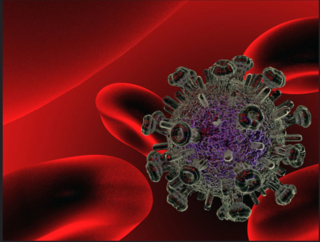Health
Close It All Down
Pandemics offer us little choice.
Posted March 12, 2020 Reviewed by Lybi Ma

A few weeks ago I wrote about the SARS-CoV-2 virus with a story about its possible beginnings, and how it was destined to become the world’s next pandemic. I’m not a virologist or epidemiologist, but do know a great deal about human thinking and behavior with a solid grounding in biology. The combination of mild initial presentation and long incubation period meant SARS-CoV-2 would be impossible to contain without draconian effort.
Yesterday WHO finally admitted the virus had spread beyond containment, and as respiratory viruses do, it will spread around and around the world through the human population until arrested by one of two factors—enough people gaining immunity to the pathogen that it has a hard time spreading, or we develop and distribute an effective vaccine.
What about heat? Flu and colds spread less readily in the summertime. True, for two reasons: People are outside more and less cooped up, and UV rays and heat kill the virus more readily than indoor light and air conditioning. Most of these viruses spread via droplets, some of these droplets can be tiny and are accelerated at great speed when you sneeze. When the air is more humid, the droplets are bigger and heavier and fall to the ground faster. But here’s the problem, in a normal summer, the spread is slowed by a combination of heat, humidity, and immunity. In a pandemic, no one is immune, so the pathogen continues to spread.
This is why respiratory pandemics infect 60 percent of people in the first year. With flu pandemics, this means about 30 percent of people have symptoms, and another 30 percent were infected with no symptoms. While there are conflicting reports, the same may be true for COVID-19, the disease caused by SARS-CoV-2.
So what should we do now? We are in a western country with a thousand or so cases. We’ve watched a number of countries go before us. China, where things got out of control and people were dying in the streets of Wuhan until they locked down 800 million people for 6 weeks and got their pandemic under control. Then Iran… now we have reports of football fields dug for graves. Italy had the misfortune to be next. A few cases, a great health care system, now running out of ICUs and overwhelmed. On the other side, Singapore, Hong Kong, and South Korea, where testing and obsessive tracking and quarantine slowed and even stopped the spread.
Why not just “take it on the chin” as Boris Johnson suggested in early March (he has since become much more serious in controlling the pandemic). Let the epidemic burn through. After all, it is a mild infection in the young without medical problems. Just in case you have no love for your grandparents or friends who are immunocompromised, here’s why not. The virus is 10-30x as deadly as normal flu, and we have not extra surge protection for a new pandemic. We have little capacity for extra ICU beds, and these patients stay ventilated in the ICU for weeks. If you get in a car accident, get a brain injury, need an ICU for a few nights to regulate…in a pandemic you are dead. The ICUs are full. The hospitals are full. Don’t get sick. Don’t be injured.
Only magical thinking keeps Seattle or New York City from becoming Italy. We have to shut it all down. We have to isolate, close down all large meetings, and sanitize our hands with soap when we enter our own homes. The more we hunker down, the less drastic the epidemic. The more they complain about how we are overreacting, the better the job we have done.
We all have power over our own destiny. The only way to be infected* is to be sneezed or coughed on in close quarters or a crowd or to touch the (sticky, oily) virus particles and then touch the “T zone” of our faces. If we wash or sanitize (with >60 percent isopropyl alcohol or soap) or hands before we touch our faces or anything that goes in our mouths, and keep a distance from anyone who might cough or sneeze, we cannot get sick.
Stay at home. Watch Netflix. Attend your classes on Zoom. Do med visits via doxy.me or vsee. Federal regulations universalizing Telehealth would go a long way to ending this epidemic. Buy in bulk (do not hoard, get enough for the family for a few weeks) and avoid crowds. Now.
Our sick and dead today represent a much smaller number of cases two-three weeks ago. Epidemics spread, initially, logarithmically**—2 becomes 4 becomes 16 becomes 256. Use your imagination to foresee the horror of how it goes. It slows down when we hunker down. If we don’t, the ICUs are overwhelmed, and thousands die. It’s our civic duty to stay at home and sanitize and not touch our faces. I say this with all seriousness.
Shut it all down, now, and we can open it up again in some weeks, rested and wiser, and our ICU docs won’t be overwhelmed and die, and our ER nurses won’t be quarantined. It’s a bigger price to pay the longer we wait.
*health care workers can be infected in other ways in the process of certain health care procedures. This is why they desperately need N95 respirator masks, which are, in general, not needed by the public.
**yes epidemics do slow down and no longer spread exponentially, but in many places we are still in the early log phase and this information is from noted epidemiology groups
Copyright Emily Deans, MD
Edited on March 22 to reflect some changes in public responses




